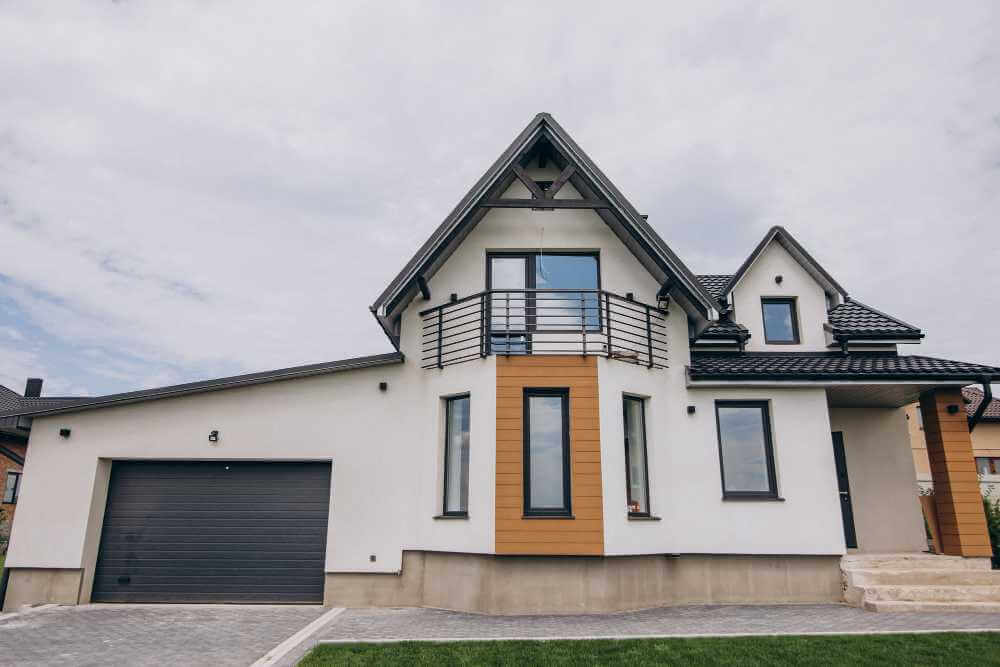There are 2 options available when you consider buying a new house. First, you partner with the homebuilder and get your house made as per your preference while enjoying 100% customisation.
Or you could also choose from the builder’s selection of inventory homes.
Often people think that home buyers who work with a custom homebuilder have to undergo a ton of decision-making with minute details and a large number of options. This may be true sometimes, maybe not, it really depends from situation to situation.
However, opting for an inventory home can make your life simple and make the home-buying experience a smooth process and also reduce the waiting time. It’s a win-win in every way.
Now let’s understand the concept of inventory homes and its benefits to buyers.
An inventory home is also called a ‘spec home’, which basically means a house that the builder has completed or is on the verge of completing. These homes can act as model homes or show homes for new neighbourhood developments. In other cases, they are just homes based on popular floor plans which according to the builder potential buyers will like.
You can think of inventory homes as property in the existing real estate market with the exception that it has never been inhabited.
So let’s compare the process of purchasing an inventory home with building a custom home from scratch.
First, we will start with some advantages of having a custom home instead of an inventory home.
One of the major advantages of selecting a custom home is that you get to choose the exact location of where your house will be. You have the freedom to choose the specific lot that aligns with your preferences. On the contrary, when choosing an inventory home you will have to settle for the location where it is built.
Custom homes also offer a wide range of customization options and because you have been actively participating in the building process from the beginning you get to decide your favourite design of floor plans, cabinetry, countertops, appliances, fixtures, and other options.
Whereas in the inventory home, the builder is the one to make all these choices leaving you with little to no room for further customization.
With a custom home, you have the opportunity to work closely with architects and designers to ensure the design meets your needs. Need an open floor plan for family gatherings? Want custom storage solutions to keep your space organized? No problem! You can collaborate to incorporate features that maximize functionality and perfectly suit your family’s requirements.
This gives a wonderful personal touch to the overall experience of building your home and this is something that has a lot of emotional value attached to it.
One more advantage of building a custom home is the assurance of quality and craftsmanship. You have the ability to select experienced architects, builders, and subcontractors who are committed to delivering exceptional work. Nothing goes without a careful inspection of your eyes. This ensures that your home is constructed using high-quality materials and meets your standards of durability, sustainability, and longevity.
As we know that a home is a thing for the future, something that will last for generations to come and when you are building something like this you have to take into consideration the future in general. A lot of us want to incorporate energy-efficient features and green building practices. Custom homes provide the opportunity to prioritize environmental sustainability. You can choose eco-friendly materials, install energy-efficient appliances, integrate solar panels, or even implement smart home technology to reduce your carbon footprint and potentially save on long-term energy costs. When you are building a home, you are also building the future.
Building a custom home also allows you to future-proof your space. You can plan ahead and design your home to anticipate your future needs and lifestyle changes. Whether you’re expanding your family, accommodating ageing parents, or incorporating accessibility features, a custom home can be tailored to ensure your home remains functional and adaptable over the years because, at the end of the day, each family is unique and has their own unique needs.
While inventory homes are typically situated in pre-determined neighbourhoods, building a custom home gives you the freedom to choose your ideal location. You can select a specific lot or land that offers the views you desire or is conveniently located near amenities, schools, or your workplace. This gives you greater control over the setting and surroundings of your dream home.
Last but definitely not least, there’s a deep sense of emotional satisfaction that comes with building a custom home. The process of designing and constructing a home that reflects your vision is incredibly rewarding. It provides a strong sense of ownership, pride, and a feeling of truly being at home.
It’s important to note that building a custom home requires more time, involvement, and decision-making compared to purchasing an inventory home. It may also come at a higher cost, depending on the level of customization and market conditions. It’s crucial to assess your budget, timeline, and personal priorities to determine if building a custom home aligns with your goals and aspirations.
Before embarking on the journey of building a custom home, there are several crucial considerations to keep in mind, don’t forget to check these boxes:
Budget: Very important. Determine your budget and establish a clear understanding of your financial limitations. Consider not just the construction costs but also potential additional expenses such as permits, design fees, landscaping, and furnishing.
Planning and Design: Spend ample time in the planning and design phase. Clearly define your needs, preferences, and lifestyle requirements. Work closely with architects and designers to ensure that the design aligns with your vision and functionality.
Research and Choose a Reputable Builder: Goes without saying, it is very important that you conduct thorough research and choose a reputable builder who has experience in constructing custom homes. Look for references, check their portfolio, and visit their previous projects to assess the quality of their work.
Permits and Regulations: Familiarize yourself with local building codes, permits, and regulations. Understand the requirements and timelines for obtaining necessary approvals to avoid any delays or complications during the construction process. Get this list ready beforehand to avoid last-minute complications.
Timeline and Patience: Can’t emphasize enough on this point, building a custom home takes time. Be prepared for potential delays due to weather conditions, material availability, or unforeseen circumstances. Maintain patience and realistic expectations throughout the process.
Communication and Documentation: Establish clear lines of communication with your builder and maintain open and transparent communication throughout the construction process. Keep detailed records of all agreements, contracts, and any changes made during the construction.
Flexibility and Adaptability: Stay open to minor adjustments and modifications during the construction process. Some design or material changes may be necessary due to unforeseen circumstances or practical considerations. Embrace flexibility to ensure the best outcome.
Future Needs and Resale Value: While designing your custom home, think about your future needs and potential resale value. Consider factors like the number of bedrooms, layout flexibility, and overall marketability to ensure your home remains desirable in the long run.
Building a custom home is an exciting and rewarding experience, but it requires careful planning, research, and decision-making. By keeping these considerations in mind, you can navigate the process more effectively and increase the chances of building a house that you can call home.






